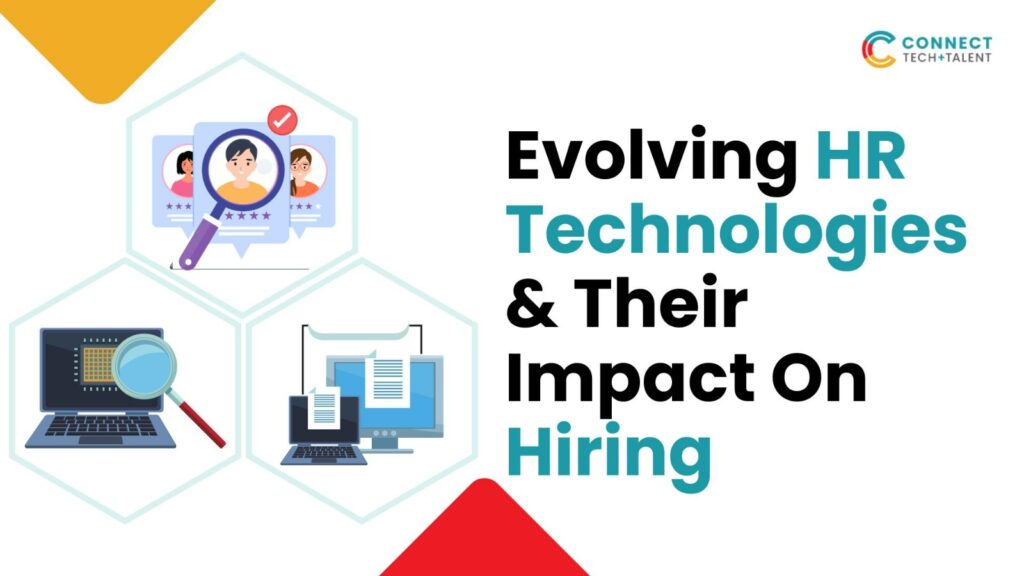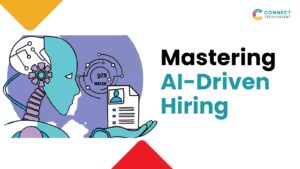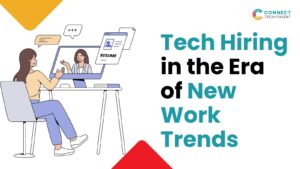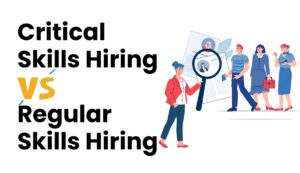In the dynamic world of recruitment, the tools and strategies that drive the hiring process are constantly evolving. As businesses strive to find the best talent, they’re turning to cutting-edge HR technologies to streamline and enhance their efforts. From AI-driven tools that sift through resumes in seconds to mobile apps that cater to the on-the-go job seeker, the future of hiring is here. Whether you’re a hiring agency, a recruiting firm, understanding these technologies is crucial to staying competitive in today’s market.
1. Applicant Tracking Systems (ATS)
ATS software is like a digital hiring agency that operates round the clock. It’s designed to efficiently organize, track, and filter applicants. For instance, a multinational company receiving thousands of applications for a single job post can use ATS to filter out candidates based on specific keywords, ensuring only the most relevant resumes are reviewed. This not only saves time but also ensures that no potential candidate is overlooked due to human error.
2. AI-Powered Resume Screening
AI algorithms have become the backbone of many recruiting firms. Consider a tech company looking for a Python developer. Instead of manually going through hundreds of resumes, AI can quickly scan and shortlist candidates who have specific experience in Python, Django, or Flask. This ensures a more objective selection and reduces the chances of overlooking a potential fit.
3. Candidate Sourcing Tools
In the realm of IT staff augmentation, finding the right talent is paramount. AI-driven sourcing tools can search platforms like LinkedIn, GitHub, and even niche job boards to identify potential candidates. For example, a company looking for a rare skill set might discover a professional who hasn’t applied for their job but has the perfect credentials on a platform like Behance or Dribbble.
4. Video Interviewing Platforms
For a contract staffing agency hiring globally, flying candidates in for interviews isn’t always feasible. Video interviewing tools, like Zoom or Microsoft Teams, allow for real-time assessments. A company in New York can interview a candidate from Tokyo, assessing not just their skills but also their body language, without either party leaving their location.
5. Assessment and Skills Testing Software
When hiring for roles that require Top IT skills, it’s essential to test candidates practically. Platforms like Codility or HackerRank allow candidates to solve real-world problems, showing their coding prowess in real-time. For instance, a candidate claiming expertise in Java can be given a timed challenge to test their proficiency.
6. Predictive Analytics
Using historical data, predictive analytics can forecast a candidate’s success in a role. For example, a contract staffing service might find that candidates who have worked in startups previously tend to perform better in fast-paced environments. Using this insight, they can prioritize such candidates for roles in dynamic companies.
7. Onboarding Platforms
Once a candidate is hired, their journey has just begun. Onboarding platforms ensure a smooth transition. For instance, a new hire joining a remote team can access all necessary training materials, HR documents, and team introductions through platforms like BambooHR or WorkBright, ensuring they feel integrated from day one.
8. HR Chatbots and Virtual Assistants
Imagine a new hire having a question about their health benefits at 2 AM. Instead of waiting for office hours, HR chatbots can provide instant answers, enhancing the overall employee experience. For instance, a chatbot can guide an employee on how to claim medical expenses, ensuring they get timely assistance.
9. Employee Referral Platforms
Referrals often lead to successful hires. Platforms designed for contract tech staffing can automate the referral process. For example, an employee can easily refer a former colleague through the platform, and if the referral is successful, the platform handles the referral bonus, ensuring a seamless process.
10. Diversity and Inclusion Tools
Organizations are increasingly recognizing the value of a diverse workforce. Tools like Blendscore or Atipica help companies analyze their hiring practices, ensuring they aren’t unconsciously biased. For instance, a company can get insights into the gender or ethnic distribution of their applicants and take corrective actions if needed.
11. Compliance and Data Privacy Solutions
With regulations like GDPR in place, handling candidate data responsibly is crucial. HR tech ensures that all data is stored and processed in compliance with global regulations. For instance, if a candidate from the EU applies for a job in the US, the company can use these tools to ensure their data is handled as per EU standards.
12. Mobile Recruitment Apps
The modern candidate is always on the move. Mobile recruitment apps ensure they don’t miss out on opportunities. A candidate traveling can get a job alert, apply, and even give a preliminary test, all from their smartphone, ensuring they can seize opportunities anytime, anywhere.
Conclusion
The landscape of hiring is undergoing a transformation, driven by innovative HR technologies. These tools not only optimize the recruitment process but also ensure that organizations attract the right talent that aligns with their goals. As the lines between technology and human resources blur, it’s evident that the future of hiring is digital, efficient, and inclusive. For businesses and staffing services alike, embracing these technologies is the key to building a resilient and future-ready workforce.




